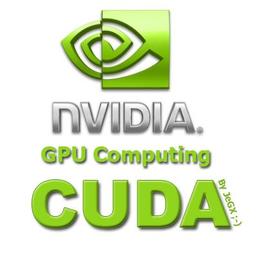Workshop 16th March 2011 9 a.m. OCF Offices, Sheffield
Introduction to CUDA and GPU Computing
- Submitter
- Kenji Takeda
Would you like to know more about CUDA and GPU Computing?
Want to find out more about what the architecture can and cannot do as well as have the ability to apply it to the compute problems within your organisation?
If so, come and join OCF on 16-17th March 2011 in Sheffield for ‘An Introduction to CUDA and GPU computing’ (£1500 (plus VAT) (includes 1 night B&B hotel accommodation and lunches))
Over the two day course attendees will obtain a thorough grounding in GPU and data parallel computing.
Pre-requisites: This course assumes a working knowledge of C or C++ and provides a full introduction to both the CUDA (Compute Unified Device Architecture) and its associated programming model.
Day 1
The first day covers all basic aspects of the hardware architecture and programming model with topics including:
- Introduction to GPU Computing
- CUDA Programming Model
- CUDA API
- CUDA C
- CUDA Hardware Architecture
- CUDA Memory Model
- CUDA Libraries
- CUBLAS
- CUFFT
- CUSPARSE
Day 2
The second day delves deeper into the hardware architecture and the algorithmic and software optimisations necessary to obtain the best performance from TESLA devices. This portion of the course examines a number of simple algorithms and how they map onto the CUDA architecture. It also covers in more detail the CUDA SDK and CUDA Toolkit along with simple debugging and profiling examples. The second day has an interactive component, so the attendees can have hands on experience of the tools and programming model. By the end of the course, attendees will feel confident in their knowledge of CUDA programming best practice and will be able to start developing solutions to their own particular problems.
Topics include:
-
Installing the CUDA SDK and Toolkit
-
CUDA Profiling and Debugging
- CUDA Performance considerations
- Making the most of memory
- Parallel patterns
- Interacting with the host
- Threading and branching
- More CUDA C and API
You can register your place by emailing crobson@ocf.co.uk or calling 0114 257 2200.
Course Leader - Dairsie Latimer, Co-founder of Petapath
Dairsie focuses on heterogeneous applications strategy and competitive analysis. He has an electronic and software engineering background, along with extensive experience in graphics acceleration. Prior to Petapath, Dairsie spent almost ten years working at ClearSpeed Technology on four generations of the company’s innovative heterogeneous acceleration platforms and was a member of the team that created world's first fully software programmable Graphics Processing Unit (GPU) in 1999. He has also been one of the Petapath representatives on the Khronos Group OpenCL working group and takes a particular interest in programming models and productivity tools for parallel software development. Dairsie has a broad knowledge of the major heterogeneous platforms as well as more traditional cluster based systems and combines his skills as an applications and library engineer with training and technical marketing.
